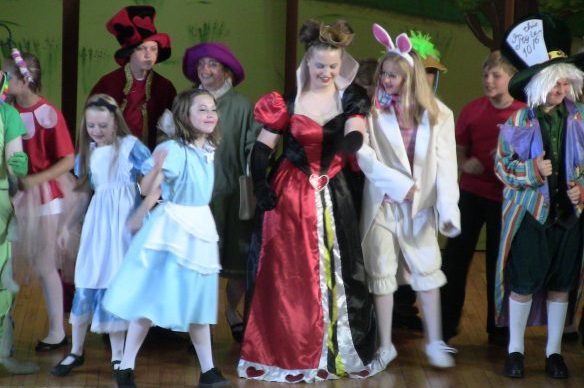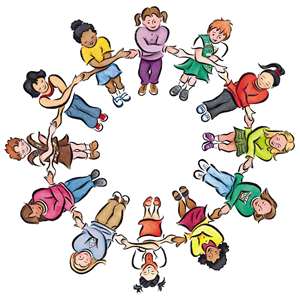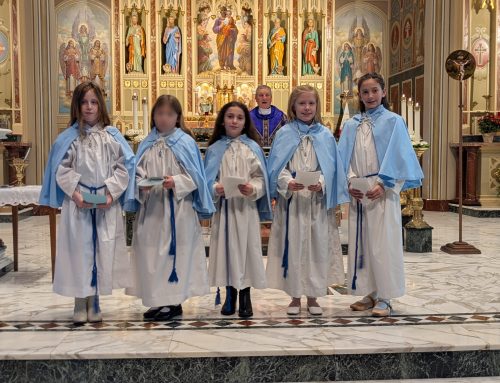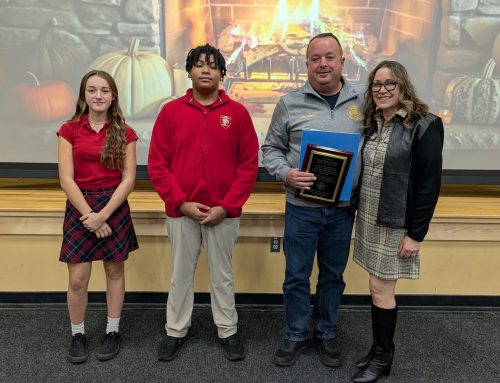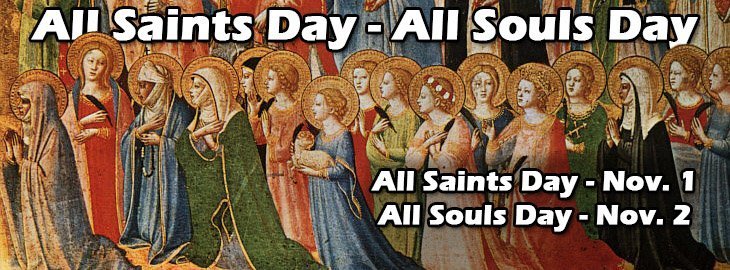
Written by Msgr. Czarnecki and recently published in the “Beyond the Pews” section of the Webster Times…
Next Thursday, November 2nd the Catholic Church celebrates All Souls Day. On this day, we direct our thoughts to those who have finished their earthly journey of life and entered eternity. It is a tradition of Christianity that we visit a cemetery, pray for our deceased loved ones and place a votive lamp on their gravesite. Each one of us can relate to a person or several people with whom we lived or worked–they could have been our parents, siblings, spouses or friends who made a lasting impression on our lives, but are no longer with us. Their departure left a void in our life and left us with many questions such as: Where they are now? Can we see them again?
By our birth we accept the fact that someday our earthly life will end. Part of this “contract of life” entails that there is no way out of the “mortality clause”. All creatures are ephemeral which means that sooner or later, gradually or suddenly, predictably or unexpectedly, by the course of nature or a tragic accident or a wound inflicted by the ill-will of another person, the time will come to meet our Creator. We all inescapably live under the shadow of death. But there is no need for anguish and despair because death is not the absolute terminus. There is a bright and infinite horizon beyond. Believers of various religions and faith traditions affirm that there is life after death. Although it may seem self-contradictory at first glance, the truth is that is it possible to survive death.
Nihilists and cynics will say that everything is annihilated abruptly like in a black hole, but people of faith know that an afterlife awaits their soul. Life is not entirely ended, but rather is changed, somewhat like a caterpillar undergoing metamorphosis and leaving its cocoon. For the human person terrestrial life ends and new life begins in the heavenly homeland.
Saint Paul the Apostle wrote: “Eye has not seen, ear has not heard, nor has it entered the human heart what God has prepared for those who love him” (1 Corinthians 2:9; cf. Isaiah 64:3). As the Catechism of the Catholic Church expresses: “Heaven is the ultimate end and fulfillment of the deepest human longings, the state of supreme, definitive happiness” (1024). Each and every soul yearns to be united with God for all eternity. Therefore, incomprehensible is the happiness in which the soul will be immersed.
We cannot talk our way into heaven at the moment we are standing before the judgment seat of God. Our fate is sealed when we draw our last breath. Here and now is the time to hear the word of God and respond to God’s beckoning. We need to convert away from our defiance, with the freely-given grace of God, and accept the invitation to live as sons and daughters of God before we pass from this life and see God face-to-face. Life is not a farce; it is not just “virtual reality” or a “dress rehearsal for a play”. Life is real. Whether we accept or reject God in our hearts and minds has real and lasting consequences.
We will stand as an individual before God, who is justice and mercy itself. The track-record of our life will reveal the answer to the question: “Do you love me”? Our love for God and others will determine our fate. We cannot willfully ignore or deliberately contravene God’s word throughout this life and suddenly become His best-buddy in the afterlife. We can and must, with the help of the gift of grace, cultivate a friendship with God day-in and day-out. A personal relationship with Jesus begins here and now. What the world sees as a risk—a life of righteousness—is a risk worth taking; the alternative of being one’s own god is not worth the cost.
Contrary to the spirit of our age, after the internet revolution which embraces the motto, “I can do whatever I want” and seemingly holds that wrong acts and badness have no repercussions, actions do have a price tag in our earthly lifespan and implications on our eternal destiny. Our internal disposition and our external words and deeds make a difference.
This should resonate with our present generation, especially young people who do not have any goals of life but concentrate their attention on superficial experiences and illusions. Many of them lost their identity and someone called them “homeless tourists” because true values appear to them as deluded and doubtful. The question is, how to awaken them to deal with the reality of life so they may understand that God, the Church and Divine Worship are the essence of our daily existence. The famous French philosopher, Blaise Pascal, said, that eternity affects the human person in the core of his very existence and touches him so deeply that the man has to lose all his senses not to care about it. Why, then, doesn’t the present generation care about their eternal life? Most likely because their parents don’t care either, or because they are being educated by the internet, television, and the streets and therefore their minds are imprisoned in the fog of fictional reality.
The Catholic tradition emphasizes human cooperation with the gift of supernatural grace and the responsibility of persons for their actions. Having faith—a true faith which finds expression in good deeds—is necessary for eternal salvation. “Good works, made possible by grace and the working of the Holy Spirit, contribute to growth in grace,” states the Joint Declaration on the Doctrine of Justification by the Lutheran World Federation and the Catholic Church, “so that the righteousness that comes from God is preserved and communion with Christ is deepened”. Conscious of the fact that Christ Jesus died for all of us and this truth is permanent and irrevocable. Therefore, we should lead lives that reflect God’s unmerited gift of grace to everyone.
We should not remain indifferent about the health and well-being of our soul. We need to be open-minded to God’s plan for our life and the grace that fuels it. The little things and the big things we do, matter. We need to ensure that we do not rupture our relationship with God by what we do or what we fail to do. God never fails to deliver His end of the bargain. The divine promise of eternal life is trustworthy, for God never deceives nor can God ever be deceived. Let us live as fervently in accord with that divine promise which is our only anchor of hope. At the end of the day, when we trust in God’s goodness and mercy and cooperate with the gift of God’s grace, we can survive our own mortality and rejoice forever with our loved ones who preceded us, and the angels and saints in paradise.




